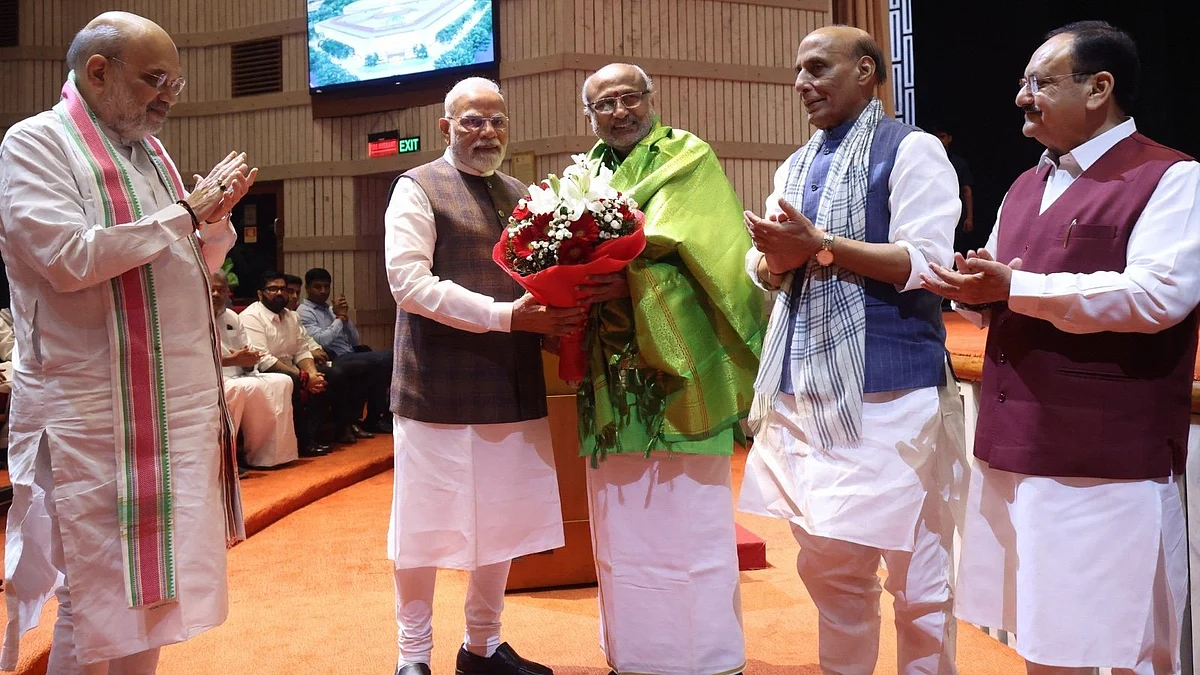NDA’s vice-presidential nomination long on optics, short on impact
C.P. Radhakrishnan’s candidature is a political signal — but alas, not a solution

The NDA’s choice of C.P. Radhakrishnan as its vice-presidential candidate is a classic example of political posturing masquerading as strategic outreach.
At first glance, the nomination appears to tick many boxes — southern representation, OBC identity, RSS credentials and a reputation for constitutional propriety. But scratch the surface, and it becomes clear that this is less a step forward and more a diversionary tactic in the BJP’s long-running struggle to gain real political ground in Tamil Nadu and the South.
For the BJP, Tamil Nadu and West Bengal remain the most challenging frontiers in the current phase of its journey, and Radhakrishnan’s nomination signals a sharper focus on the south.
With Tamil Nadu as the clear target, the choices for the post were limited. If the BJP truly aimed to build a meaningful bridge to Tamil Nadu, it might have considered someone with a more contemporary connect, broader appeal, or at the very least, a record of mobilising support on the ground. Instead, it has chosen a candidate who suits the party's internal calculus: safe, uncontroversial and ideologically ‘pure’ — but not necessarily one who speaks to the aspirations or anxieties of the southern electorate (such as delimitation).
Radhakrishnan, an OBC leader from the Gounder (Kongu Vellalar) community in western Tamil Nadu, represents a social base the BJP is keen to consolidate. His political career has followed the classic Sangh Parivar trajectory — joining the RSS at 16, moving into the Jan Sangh in 1974 and steadily working his way up through grassroots and organisational structures.
This nomination also reflects the BJP’s continuing reliance on symbolic gestures in regions where it lacks real political capital. Radhakrishnan’s Gounder identity may be intended to attract a slice of the OBC vote, but this caste arithmetic is unlikely to shift the needle in a state where the BJP’s cultural politics remain alien, if not outright rejected, by the broader electorate.
The party’s inability to articulate a credible southern agenda cannot be remedied by appointing one of its old guard to a largely ceremonial post.
Born in Tiruppur, Radhakrishnan was one of the few BJP leaders to make an early mark in the state. He may be a loyal foot soldier of the Sangh Parivar, but his political relevance in Tamil Nadu has long since faded. His brief moment of electoral success in Coimbatore in the late 1990s occurred under conditions that no longer exist. Since then, despite years in organisational roles, he has failed to expand the BJP’s appeal in the state.
Before his current role as Maharashtra governor, which began in July 2024, Radhakrishnan served as Jharkhand governor, where his tenure coincided with the arrest of then-chief minister Hemant Soren, who accused him of being part of a “conspiracy” orchestrated by the Centre.
Given the NDA’s parliamentary strength, Radhakrishnan’s election on 9 September may be a matter of formality.
Ultimately, though, C.P. Radhakrishnan’s nomination says more about the BJP’s internal comfort zone than its readiness to engage with the South on equal terms. It is a move designed to signal, not to solve — a routine nod to inclusivity that avoids the hard work of building consensus, credibility and connection on the ground.
But Tamil Nadu — and by extension, South India — deserve better than symbolic overtures. And so, for that matter, does the vice-presidency.
Follow us on: Facebook, Twitter, Google News, Instagram
Join our official telegram channel (@nationalherald) and stay updated with the latest headlines
